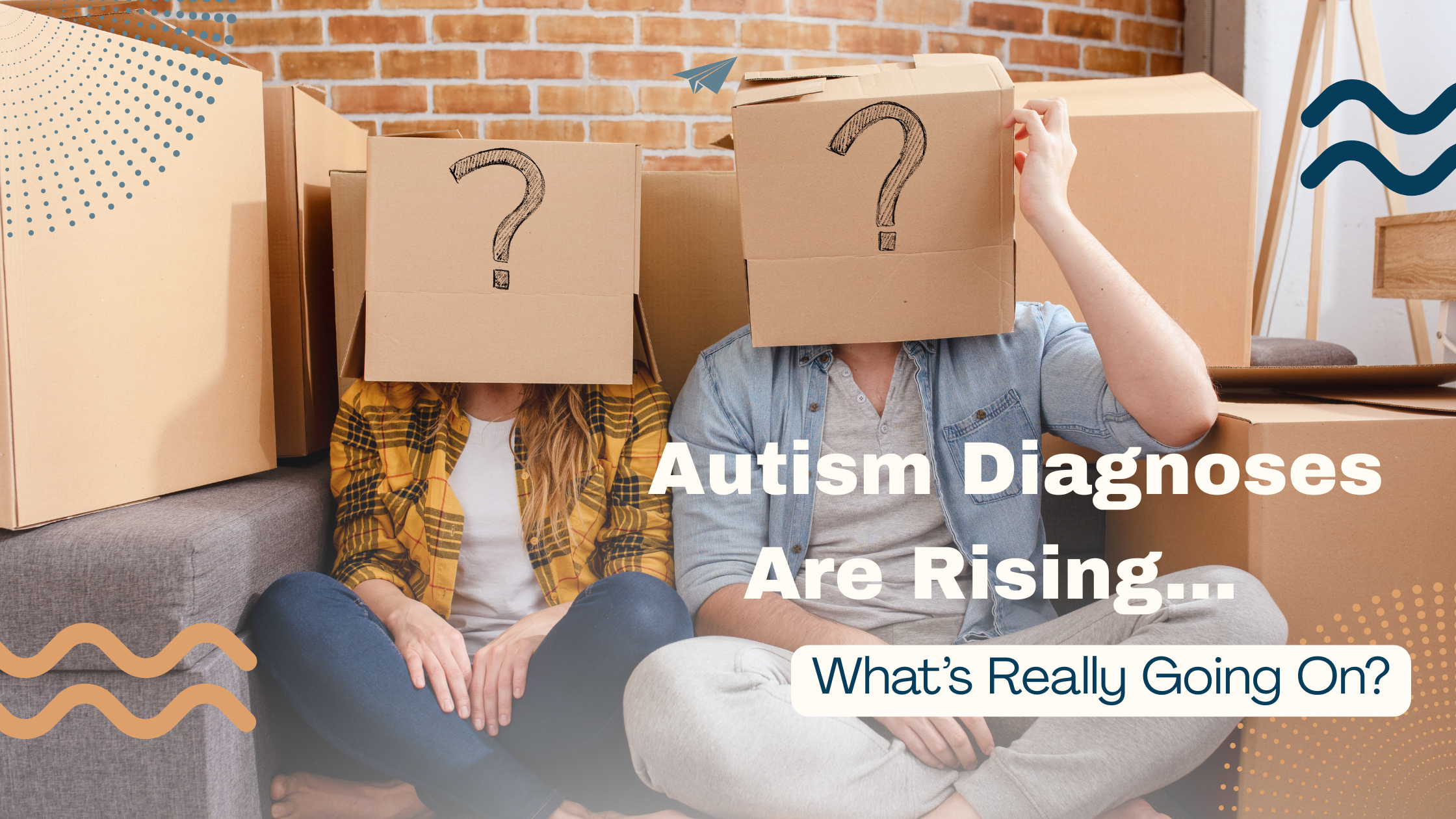Autism Diagnoses Are Rising… What’s Really Going On?
April 25, 2025

If you’ve seen the headlines or caught a conversation online lately, you might have heard that autism diagnoses are increasing. For many parents and caregivers, this kind of news can feel confusing—or even alarming. But here’s the thing: the rise in autism diagnoses isn’t a cause for panic. It’s actually a sign of progress.
Let’s talk about why.
We’re Not Seeing More Autism—We’re Seeing More Understanding
Autism Spectrum Disorder (ASD) has always existed—but how we understand, recognize, and diagnose it has changed dramatically over the years. In the past, many autistic individuals went undiagnosed or were misdiagnosed. Today, thanks to improvements in screening tools, greater awareness, and a more inclusive understanding of what autism looks like across different ages, genders, and cultural backgrounds, more people are being identified than ever before.
And that’s a good thing.
Why Are Diagnoses Increasing?
There are a few key reasons we’re seeing more autism diagnoses:
1. Better Awareness
Teachers, pediatricians, therapists, and parents are more educated about the signs of autism. With more eyes trained to spot early indicators, more children are being referred for evaluation.
2. Improved Diagnostic Tools
The tools professionals use to diagnose autism have become more refined and inclusive. This means people who may have previously flown under the radar—especially girls, people of color, or those with milder symptoms—are now getting the support they need.
3. Early Screening
Routine developmental screenings are helping catch signs of autism earlier. The earlier a child is identified, the sooner they can access helpful therapies and support systems.
Why This Matters for Families
A diagnosis of autism opens the door—not closes it. Once families know what their child needs, they can pursue personalized, evidence-based support like:
- Applied Behavior Analysis (ABA) Therapy
- Speech Therapy
- Occupational Therapy
- Social Skills Training
- Parent and Caregiver Coaching
These services can make a meaningful difference in how children learn, communicate, and experience the world. Early intervention helps build confidence, independence, and emotional resilience—not just for the child, but for the entire family.
The Takeaway: More Diagnoses = More Support
Increased autism diagnoses don’t mean something is “going wrong.” In fact, they reflect what’s going right. We’re learning. We’re growing. We’re catching needs earlier, reaching more people, and celebrating the strengths and diversity of individuals on the spectrum.
Autism isn’t new. But how we see and support it is evolving—for the better.
If you’re a parent or caregiver wondering about early signs, what support might look like, or how to create an autism-friendly environment, we’re here to help. The more we understand, the more empowered we all become.
